How rejecting racism, reconnecting with Arabic culture, and a chance phone call helped bring Assassin's Creed Mirage's Basim to life
On the Radar | In conversation with Lee Majdoub, the man tasked with reimagining Basim Ibn Ishaq in Assassin's Creed Mirage
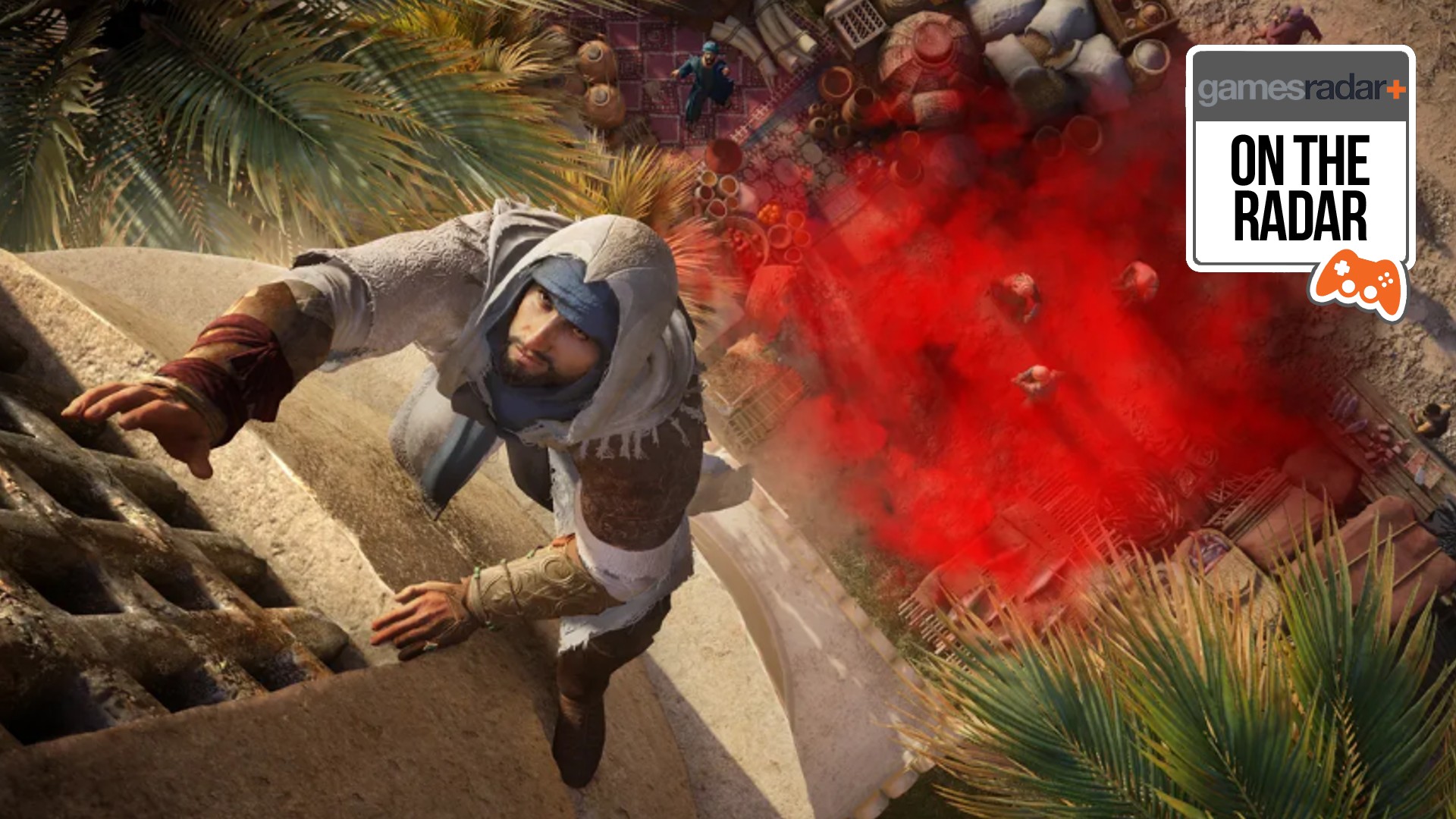
There's an old Scottish proverb that says 'what's for you will not go by you'. For actor Lee Majdoub, the voice of Basim Ibn Ishaq in Assassin's Creed Mirage, these words of wisdom really couldn't be more true. Because after distancing himself from his Arabic upbringing in adulthood for a number of personal reasons – not least in the face of everyday racism – Majdoub made the profound, and ultimately serendipitous, decision to reconnect with his cultural roots; re-learning his native Lebanese in language, writing and speech, via video calls with his mother three times every week.
Around eight months after making this decision, Ubisoft contacted Majdoub completely out of the blue with two unsolicited questions: "Can you speak Arabic?" and "Can you read Arabic?" Majdoub could not believe his luck.
"To then be telling a story and showing the Middle East in such a vibrant, positive light," he says, "and reminding people historically that so much art came out of there, and so much science… there are so many elements of this game and my life that came together at the right time."
It was all a dream
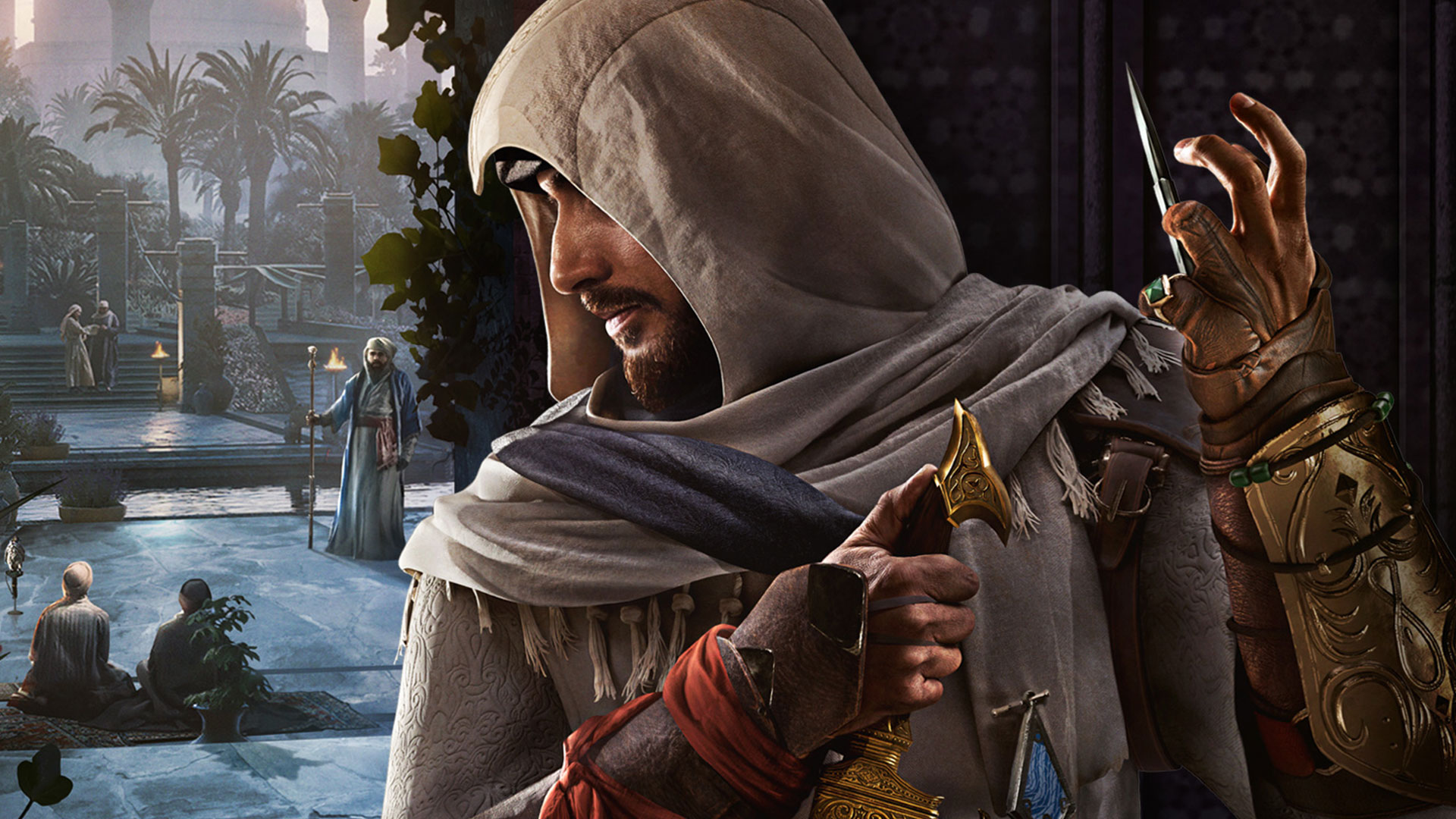
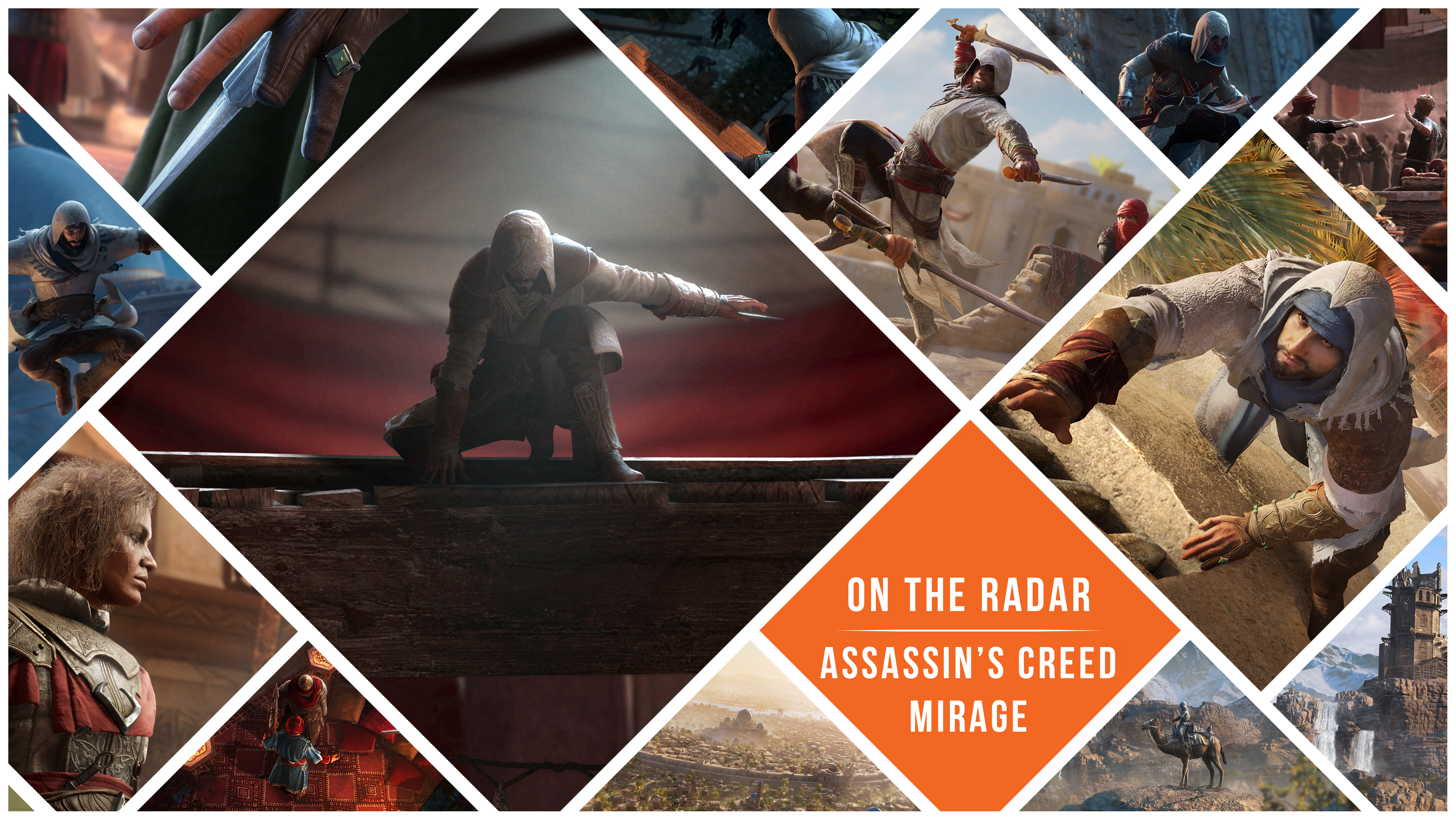
This exploration of Basim is part of our week of Assassin's Creed Mirage: On the Radar coverage
Assassin's Creed Mirage is still a few days from launch at the time of writing, meaning so much about Ubisoft's next mainline series entry, that promises to pay deference to the series' longstanding roots, remains unclear. Assassin’s Creed Mirage parkour feels like coming home, and that’s exactly what I’d hoped for, said GamesRadar+ Global Editor-in-Chief Sam Loveridge in our recent hands-on preview, while hailing the game's balance of new versus old.
The character of Basim himself straddles both of these camps, having played the antagonist role in Assassin's Creed Valhalla, but now taking center stage in Mirage's throwback coming-of-age tale. Basim's voice was once provided by actor Carlo Rota, but Majdoub steps into a younger protagonist's shoes who's still figuring out his place in the world and where he fits in. Against Majdoub's own introspection, and his desire to redefine his character later in life, this itself feels fitting. And so while many things remain to be seen with regards to Mirage as an overall package, Majdoub's place in this game, and this setting, feels meant to be.
"I've been a fan of Assassin's Creed from the beginning, so it's really hard not to feel emotional about it," Majdoub continues. "I'm really part of this world and getting to play the protagonist in the next game. Basim's a wonderful character, the team is incredible, and the writing is beautiful. It's such a dream come true."
"This is a fish out of water story. Here's this young guy who is trying to figure his life out, trying to figure out where he fits in, that is a dreamer. I think all of us can identify with that, with what we're trying to find in our own lives. I know I've found it really challenging in life to figure out where I fit as a person, whether it be due to my cultural background, or my skin color."
Sign up to the GamesRadar+ Newsletter
Weekly digests, tales from the communities you love, and more
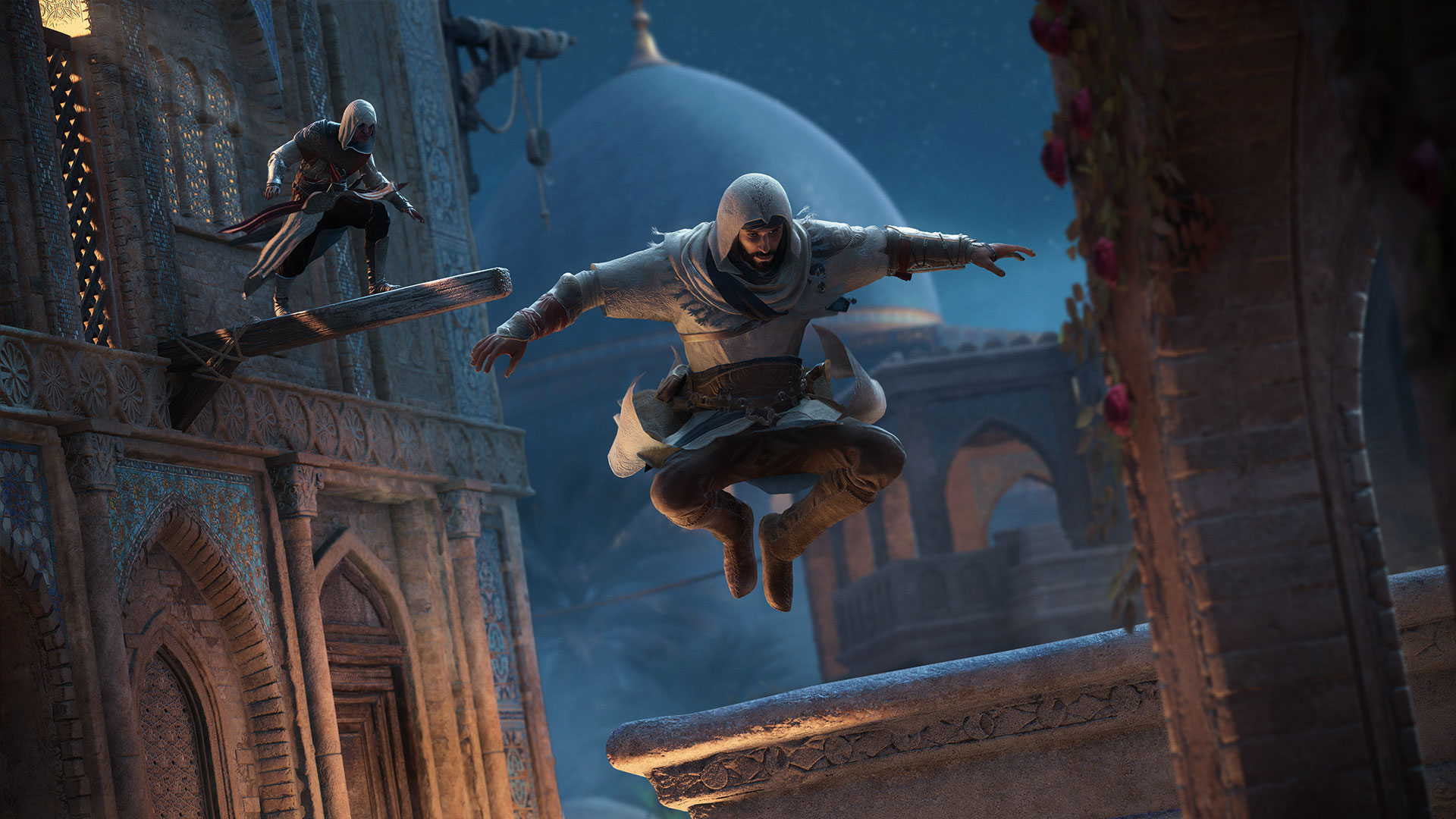
Using Valhalla as ample source material, Majdoub explains that in preparation for the role he watched and rewatched all of the character's prior cinematics before diving deep into the origins story that features in Mirage. Through this, Majdoub reckons that while Basim's personality is defined by way of experience in Valhalla, starting afresh in Mirage affords more creative flexibility as the character is still growing into who they'll ultimately become.
Before Mirage, Majdoub's career to date has seen him feature in myriad TV shows and movies – not least alongside Jim Carey in Sonic the Hedgehog and its sequel – and a handful of video games, including as a reporter in FIFA 2018's narrative off-shoot, The Journey; and as Jason 'Barracuda' Monroe in Need For Speed Payback. But Basim poses a very different, distinctly unique challenge entirely. Basim, in this incarnation, is a street thief. He's part of a like-minded group, and does whatever he can to keep his head above water – which, more often than not, leads to him breaking the law – while also wrestling with mental health issues, adding another layer of complexity to an already multifaceted individual.
Bringing such a complicated character to life can't be easy, then, but even in the way Majdoub describes Basim illustrates a strong bond on either side of the screen. Majdoub adds: "Basim is struggling with these nightmares that he's having, and he's quite a sadly traumatized character. Staying grounded within that and trying to not let his own demons and his past affect the person that he is. He manages to stay a caring, fun-loving young man, in a sense, amidst all of that. I think that makes him quite special. There's a lightness to Basim as well. He can be a smart alec at times, and I love that about him. He's got some fun one-liners and the ability to try at times to look at the bright side of things. I just like the guy!"
"There is that conversation around mental health and wellbeing. It takes place in 9th Century Baghdad, and we've got a male figure. Typically in society, men don't really talk about their feelings and here he is, trying to explain to people without being judged or being deemed crazy. The story is so beautiful, it's so layered, and Basim was written with such care and love."
The phone call
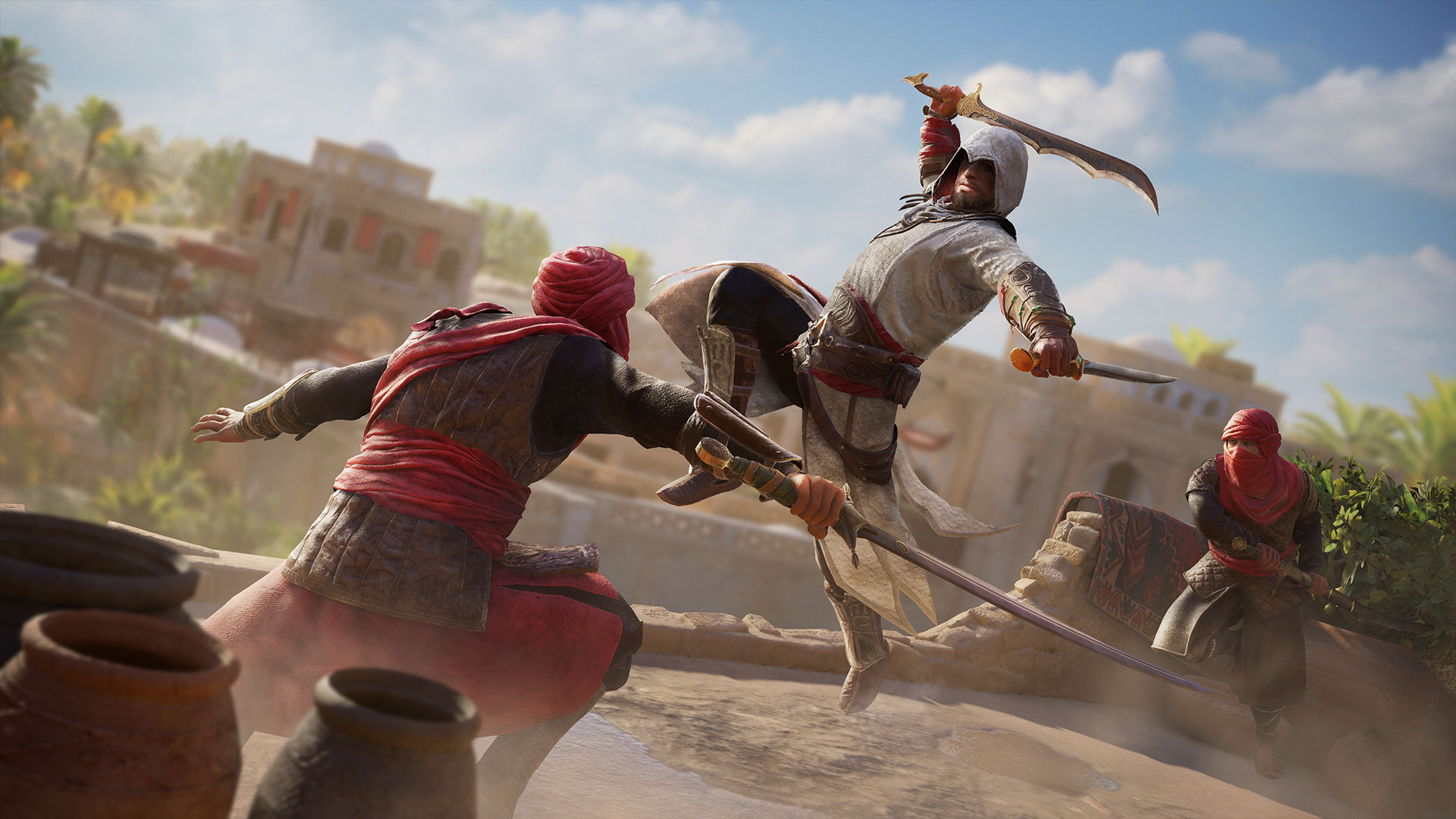
"I think a lot of people think it's predominantly a particular-looking person and Muslim, and that's it. But it's not, it was such a melting pot! Persians, and Middle Eastern, and Romans, and Greeks, and Chinese and Indian all represented thanks to the Silk Road."
So, in the interest of origin stories, what about that phone call that brought Majdoub on board with Ubisoft and Assassin's Creed Mirage in the first place?
"Part of my struggle, in my youth and into my early 20s, was around being Middle Eastern," Majdoub explains. "I struggled with that, as there was a lot of racism, so I was cutting myself off from that part of me, choosing to no longer speak Arabic, no longer wanting to be a part of it or be associated with it. Funnily enough, part of my life's journey in the last few years has been clicking back into my culture. I'm of Lebanese background, and seven or eight months before Mirage came about, I reached out to my mom and I said: I want to relearn the language, can you help?"
"So my mom and I, two or three times a week, we're on the phone, we're on video chats, and I was learning to rewrite, relearn, and respeak. Then a month later, Mirage came about and Ubisoft were like: 'Can you speak Arabic? Can you read Arabic?'. It was multicultural, there's so much representation within Baghdad. I think a lot of people think it's predominantly a particular-looking person and Muslim, and that's it. But it's not, it was such a melting pot! Persians, and Middle Eastern, and Romans, and Greeks, and Chinese and Indian all represented thanks to the Silk Road."
To repeat Majdoub's own words back, it really does feel like so many elements of this game and the actor's life came together at the right time, and his enthusiasm for Basim, the game world, and the research that's gone into bringing both to life is inspiring. To this end, Majdoub says that as someone who has struggled to identify with these parts of his own character for such a long time, and then being able to start his own personal journey into reestablishing his cultural roots and project all of this into his work, is an incredible feeling.
"Finding that love again of being Lebanese, being Middle Eastern, of having that history, finding that love for the language again [is amazing]," he says. "It's so cool to think that's my journey and now I'm going to get to show that in a character who's also kind of going through an identity crisis and wanting to do more with his life. It's constant pinching myself-type moments."
Here are 10 games like Assassin's Creed to take a leap of faith on

Joe Donnelly is a sports editor from Glasgow and former features editor at GamesRadar+. A mental health advocate, Joe has written about video games and mental health for The Guardian, New Statesman, VICE, PC Gamer and many more, and believes the interactive nature of video games makes them uniquely placed to educate and inform. His book Checkpoint considers the complex intersections of video games and mental health, and was shortlisted for Scotland's National Book of the Year for non-fiction in 2021. As familiar with the streets of Los Santos as he is the west of Scotland, Joe can often be found living his best and worst lives in GTA Online and its PC role-playing scene.
- Sam LoveridgeBrand Director, GamesRadar+


